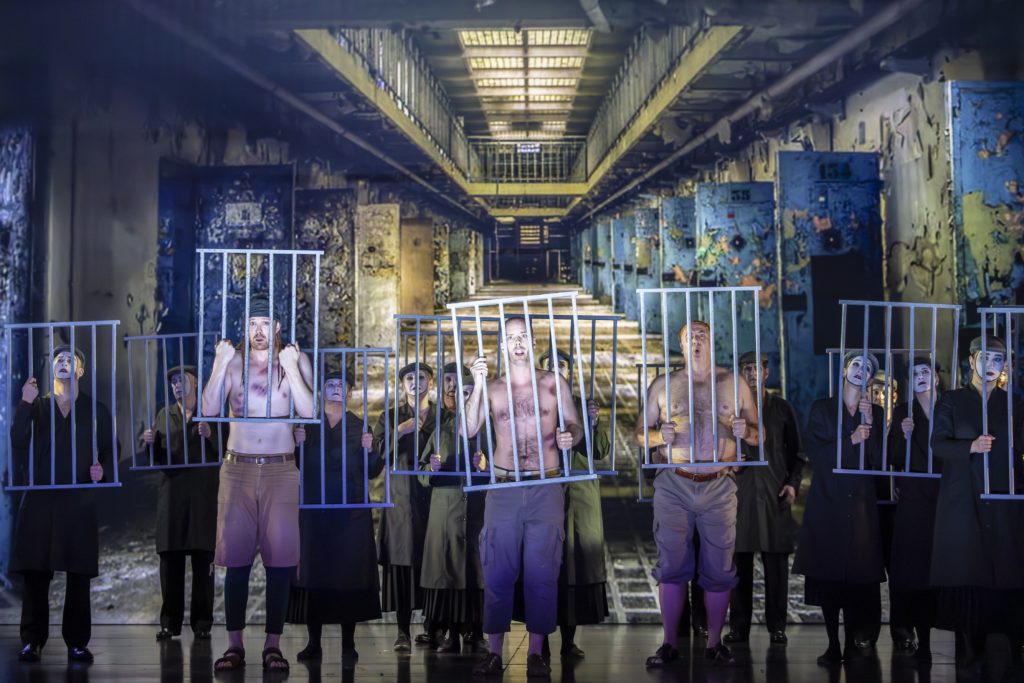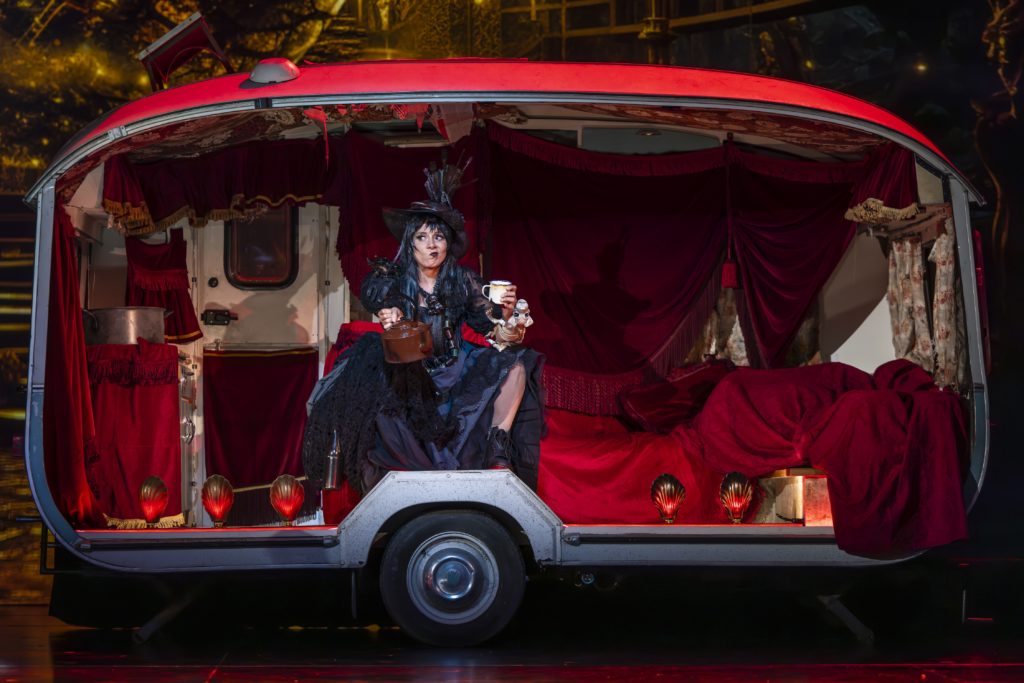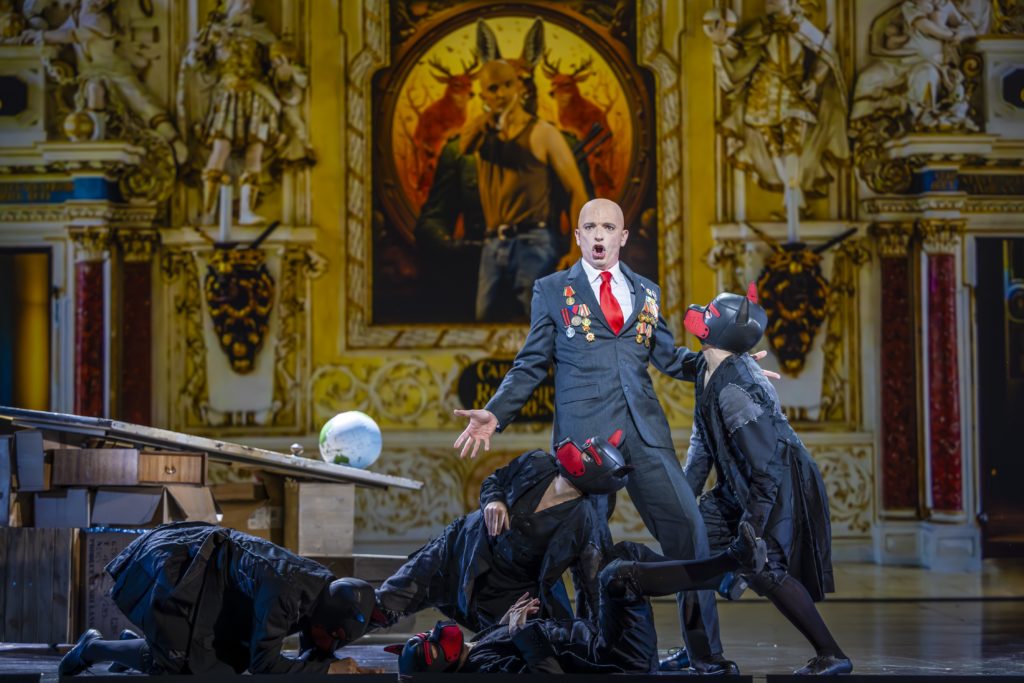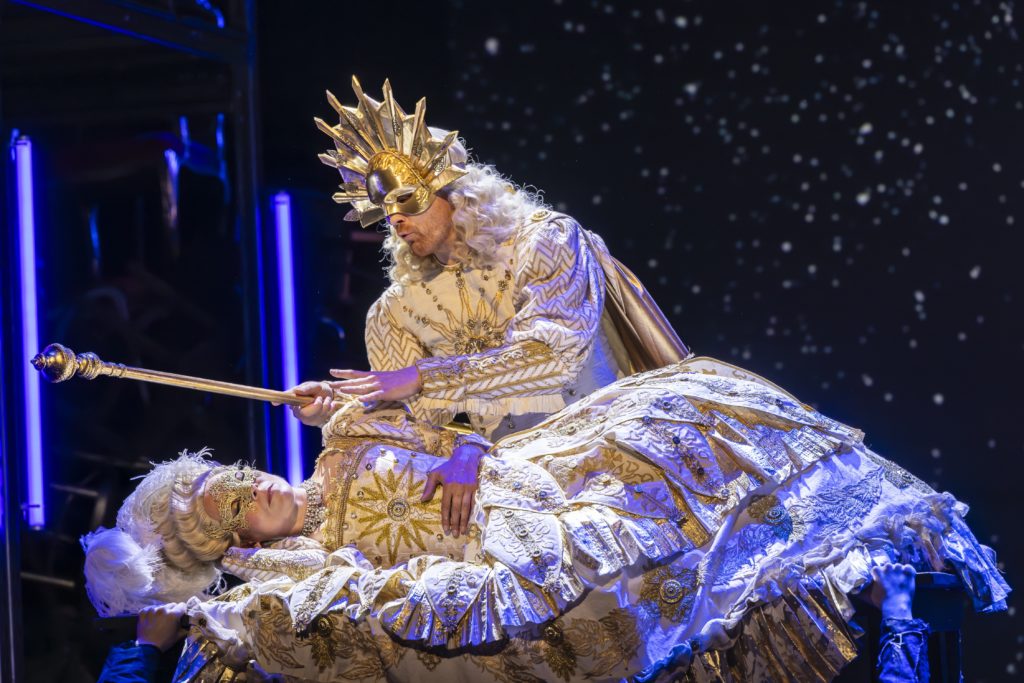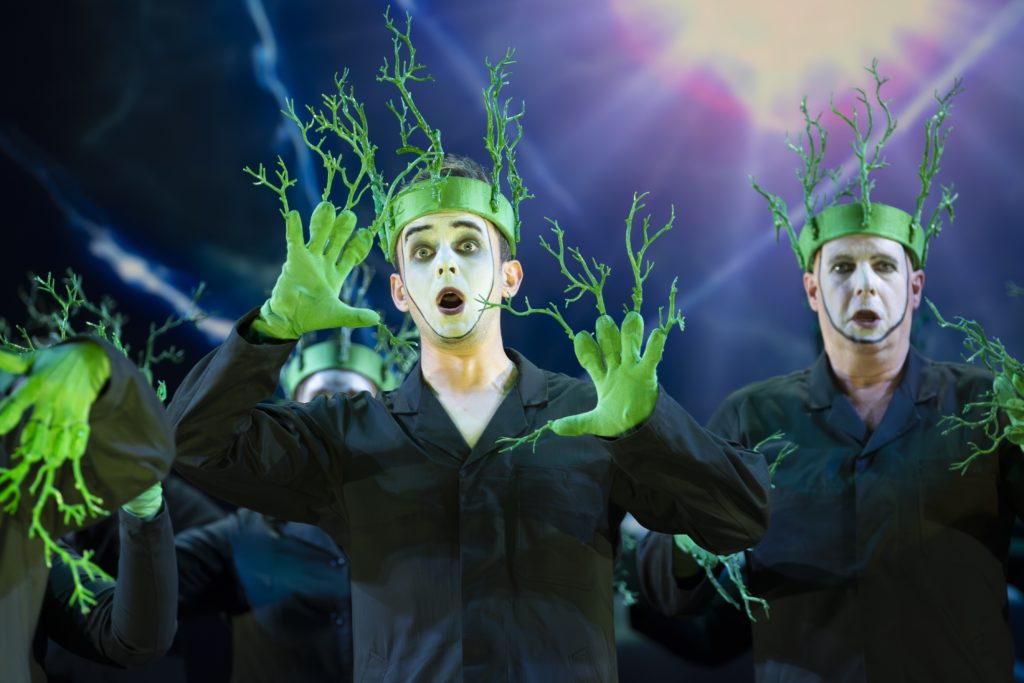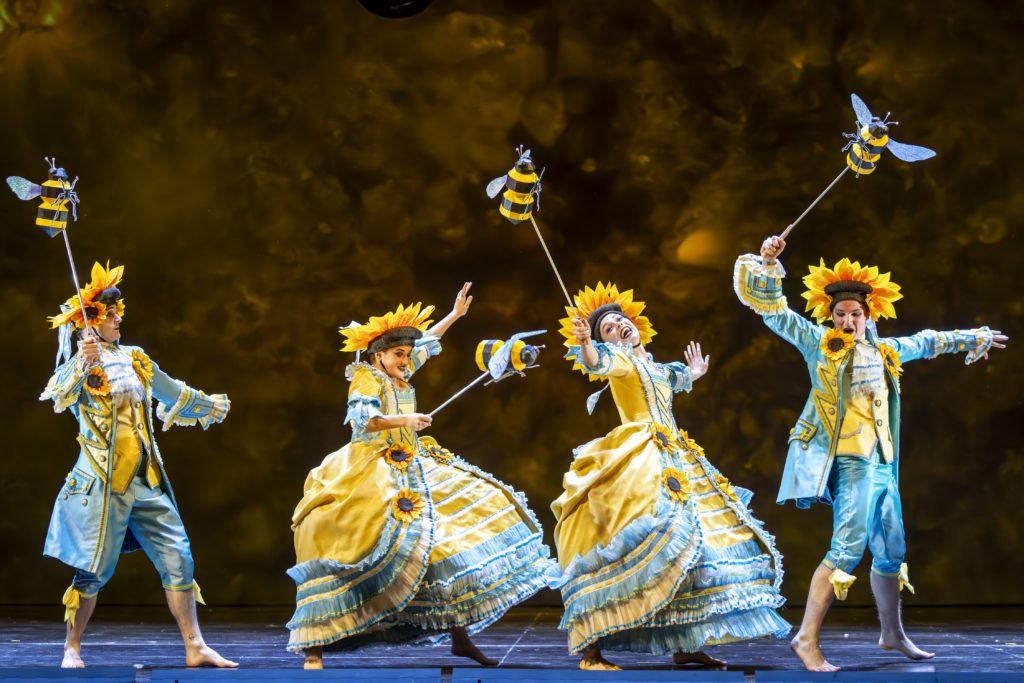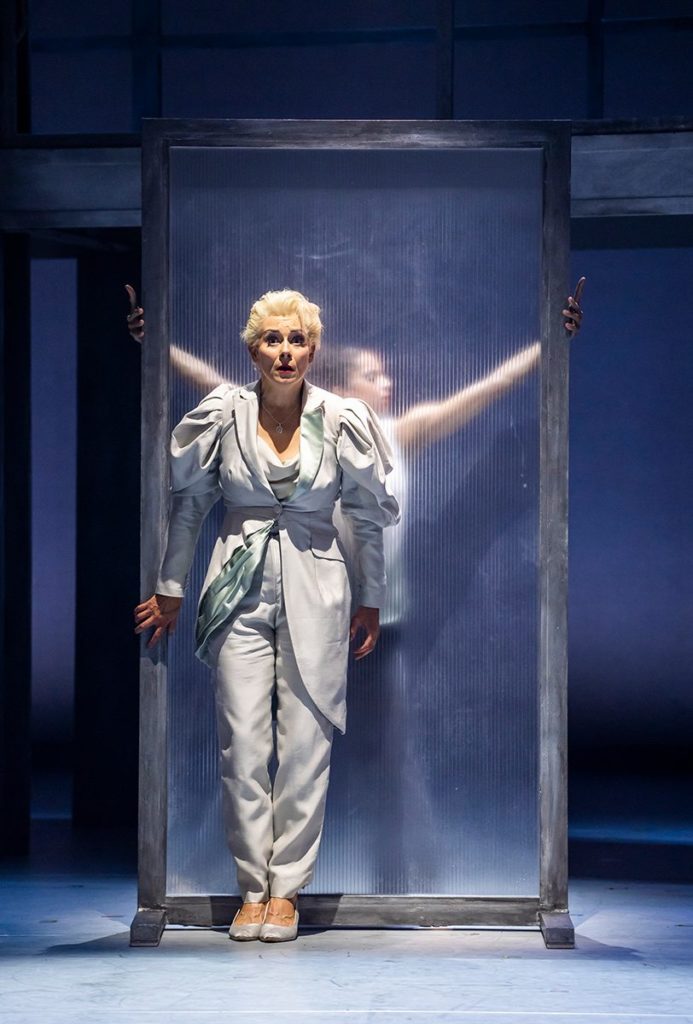
Anna Dennis as Susanna with Yasmina Patel from Phoenix Dance Theatre in Opera North’s Susanna. Picture: Tristram Kenton
HANDEL’S Susanna, billed as oratorio, might have been an opera but the Bishop of London banned staged performances of biblical topics not long before it was premiered in 1749.
Winton Dean even called it “an opera of English village life, and a comic opera at that”. Few these days would agree with him, given its tale of thwarted would-be abusers accusing their prey of adultery.
The story comes from ancient Greek sources via the Book of Daniel, where it is known as Susanna and the Elders. It’s not a comfortable topic but Opera North has never shied away from difficult issues.
Here that included its fourth collaboration with Leeds-based Phoenix Dance Theatre, adding a choreographic element not immediately evident in the anonymous libretto. That would seem to play into the hands of Dean’s vision of a pastoral idyll. In fact, Olivia Fuchs’s production, with choreography by Marcus Jarrell Willis, could hardly have treated such a serious theme with greater reverence.
Zahra Mansouri’s gantry set and modern costumes in pastel shades kept the focus firmly on the drama, with Jake Wiltshire’s lighting a constant ally.
Anna Dennis inhabited the title role to her fingertips. Her glorious tone gave life and substance not merely to Susanna’s happy marriage but to her painful trials, so that we felt every ounce of her desperation when she was falsely accused.
‘Crystal streams’ was sinuously luxuriant, while defiance was tangible in her final aria, as the Elders had their comeuppance, one debagged, the other receiving a painful kick. It was a sensational performance, riveting throughout.
Although given much less to do, James Hall as her husband Joacim was noble in support, with stunningly clear coloratura to match. Both ornamented their da capos appealingly.
Claire Lees as the young prophet Daniel – a role originally allotted to a treble – overcame the handicap of a comically androgynous costume to deliver a shining denouement with her ‘Chastity’ aria.
Fuchs resisted the temptation to make the Elders figures of fun: tenor Colin Judson and bass Karl Huml were well contrasted in both stature and temperament, the one with oily refinement, the other more impatient for conquest. Matthew Brook was firmly reliable as Chelsias, Susanna’s father.
The chorus was as forceful as ever and made more relevant with smaller gestures that chimed with the dance.
Handel provided an original overture, unusually devoid of borrowings, and the orchestra under Johanna Soller, conducting from the harpsichord, gave it fresh, enthusiastic treatment, with cleanly muscular lines in its fugue.
This set the tone for the evening, as the players gave every indication of knowing exactly what was required for a ‘period’ sound, not something you can expect from an opera orchestra. It led gracefully into perhaps the work’s greatest chorus, ‘How long, O Lord’, with the Israelites moping about their oppression – which is otherwise almost completely irrelevant to the story.
This was the first occasion where the choreography helped, with the writhings of the nine dancers enlivening an otherwise static scenario. This proved a telling feature throughout, particularly effective when the dancers acted in consort, thus reflecting the lines of the music.
At the other extreme, modern dance movements sometimes jarred with the Baroque underlay. When solo dancers acted as alter ego to a character delivering an aria, it added emotional depth; when they attempted to share too closely in the lovers’ idyll, for example, by providing an extra ring of embrace, it was intrusive, an invasion of personal space in modern parlance.
However, the continued collaboration between the two companies has undoubtedly benefited both, not least in broadening the limitations of each art form. We do well to remember that dance was regularly a component of opera from earliest times. The two need each other.
Review by Martin Dreyer

